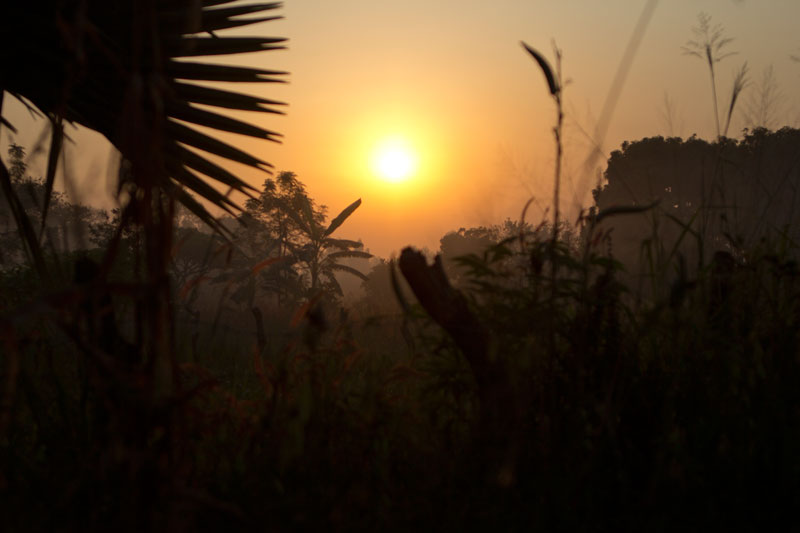PLANNING FOR AN UPCOMING TRIP to the Democratic Republic of Congo has been a taxing emotional wrestle. The more I read about the place, and the more cynical travelers that I speak to, the harder it is some days to keep on believing that documentary work can achieve all that much. Occasionally I have had to face up to instances of classic “who am I to do X” syndrome.

Battling the "Who Am I to..." Syndrome
In planning documentary trips, I believe strongly in becoming a fanatical bookworm in the run up to departure. In part, it’s because there is nothing I dislike more than the journalist who is clueless about the history of the place they find themselves in. You should know the background before you go. And not just because it makes you look like an idiot if you don’t. In parts of the eastern DRC it can cause you serious trouble.
So I’ve been reading books on the coltan trade, books on the country’s history, books by travelers, books by journalists and books by humanitarian workers. The more I learned, the more it was hard to shake a growing sense that all of the people who had gone to the place before me were often backed up by large international organisations. Their reports went to the international wire services, their books sold around the world. Even if they weren’t big fish, they wore the authority of big fish.
And so arose the disquiet of asking who I am to believe I can make a documentary work? As one of four freelancers, none of us working for a major news organisation and largely self-funded, what gives us the right to believe we can do anything of value? Is the entire enterprise simply a delusional folly?
Then I stopped reading quite so many books, and started trawling the Internet for information. I was looking for documentaries others had done, and the details of NGOs working in the areas I would be passing through.
And slowly, I began to realise that in the majority of cases, what I was looking at was an ecosystem rich in the individual work of a thousand single souls and small groups who had believed they could offer something new to under-reported stories on the margins. I realised that even the ‘largest’ and most professional organisations documenting humanitarian issues – people like Human Rights Watch – were little more than the damn hard effort of a few hundred truly motivated people.
I saw documentaries from places like Vice Magazine, where four well-organised guys put together a gripping documentary on the coltan trade in the DRC, without being foreign correspondents for a twenty four hour news channel:
Right here at Matador too, there are individuals who got over issues of “who am I to” and somehow ended up in “I can and I will”. Ryan Libre documenting the Kachin army, and Lauren Quinn, who will shortly arrive in Cambodia to work on a book exploring narratives of trauma in post Khmer Rouge Cambodia. Recently, Carlo covered the work being done by fifty different nonprofits who are changing the world. Take a harder look at many of them and you will find that they are much smaller enterprises than you might expect, given the work they do.
It’s not so much realising that there are others out there working independently on Things That Matter. It’s seeing the difference that every voice makes. Even without being a full-time foreign correspondent or enjoying the authority of fishes of varying size, every contribution counts. And many can punch well above its weight if they are directed at important issues.
In some respects, it’s a little like asking what gives someone the right to be an artist or an activist. If you feel strongly enough, that’s where your mandate lives.